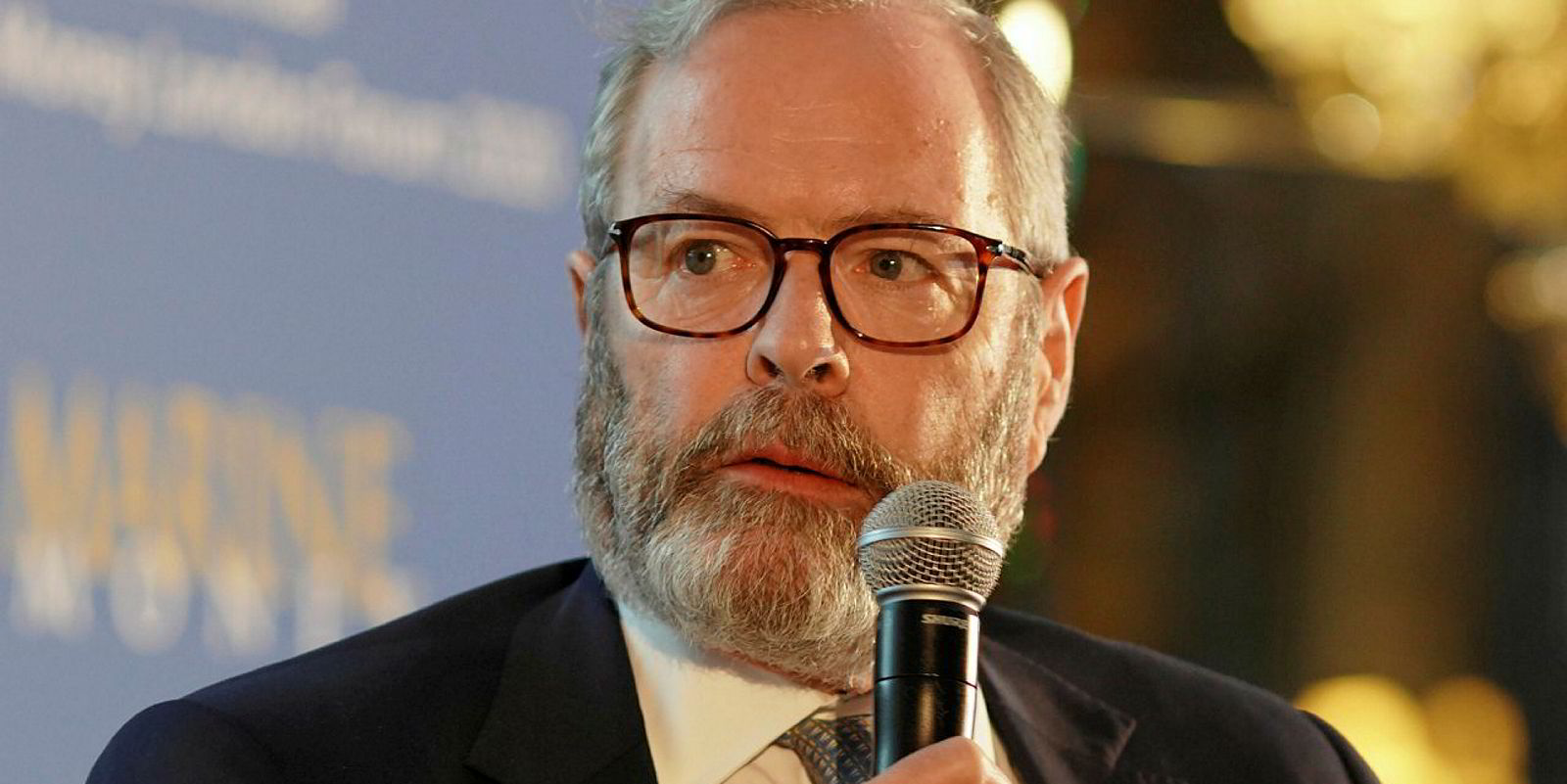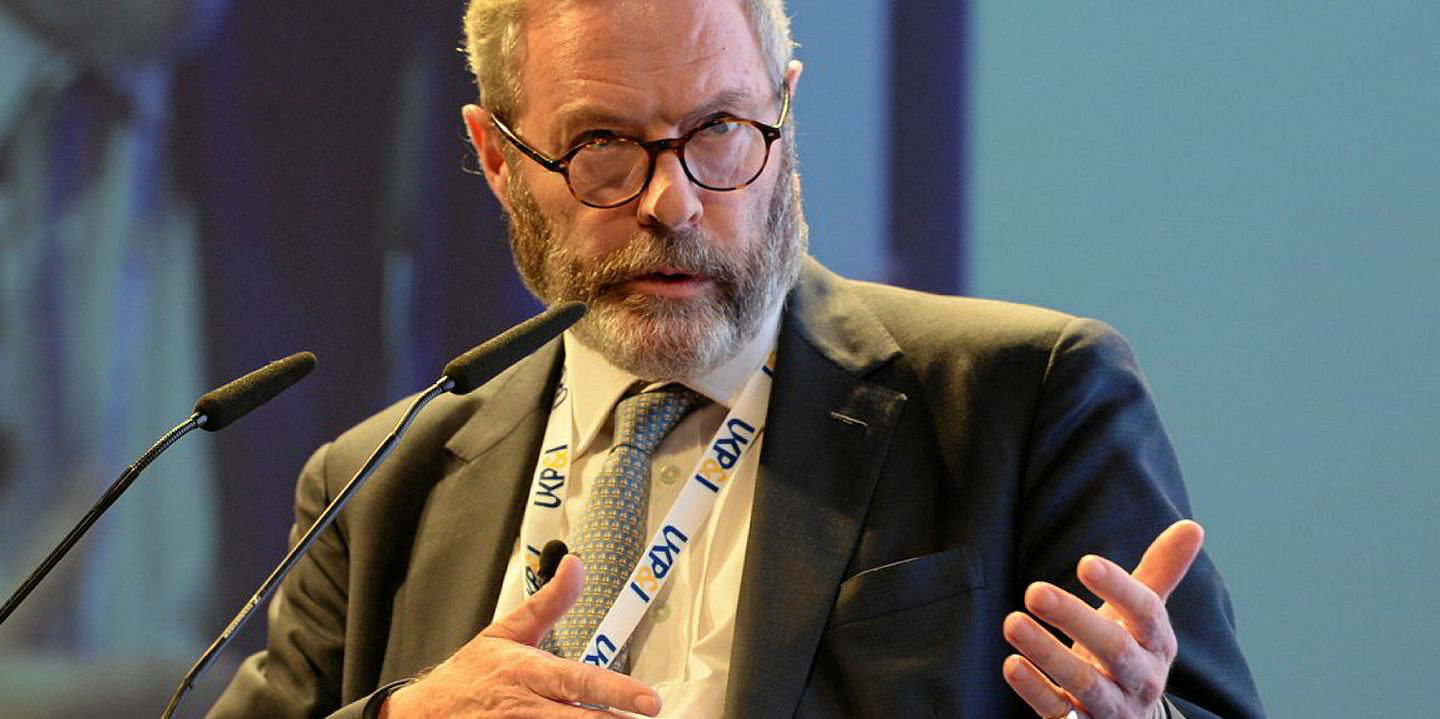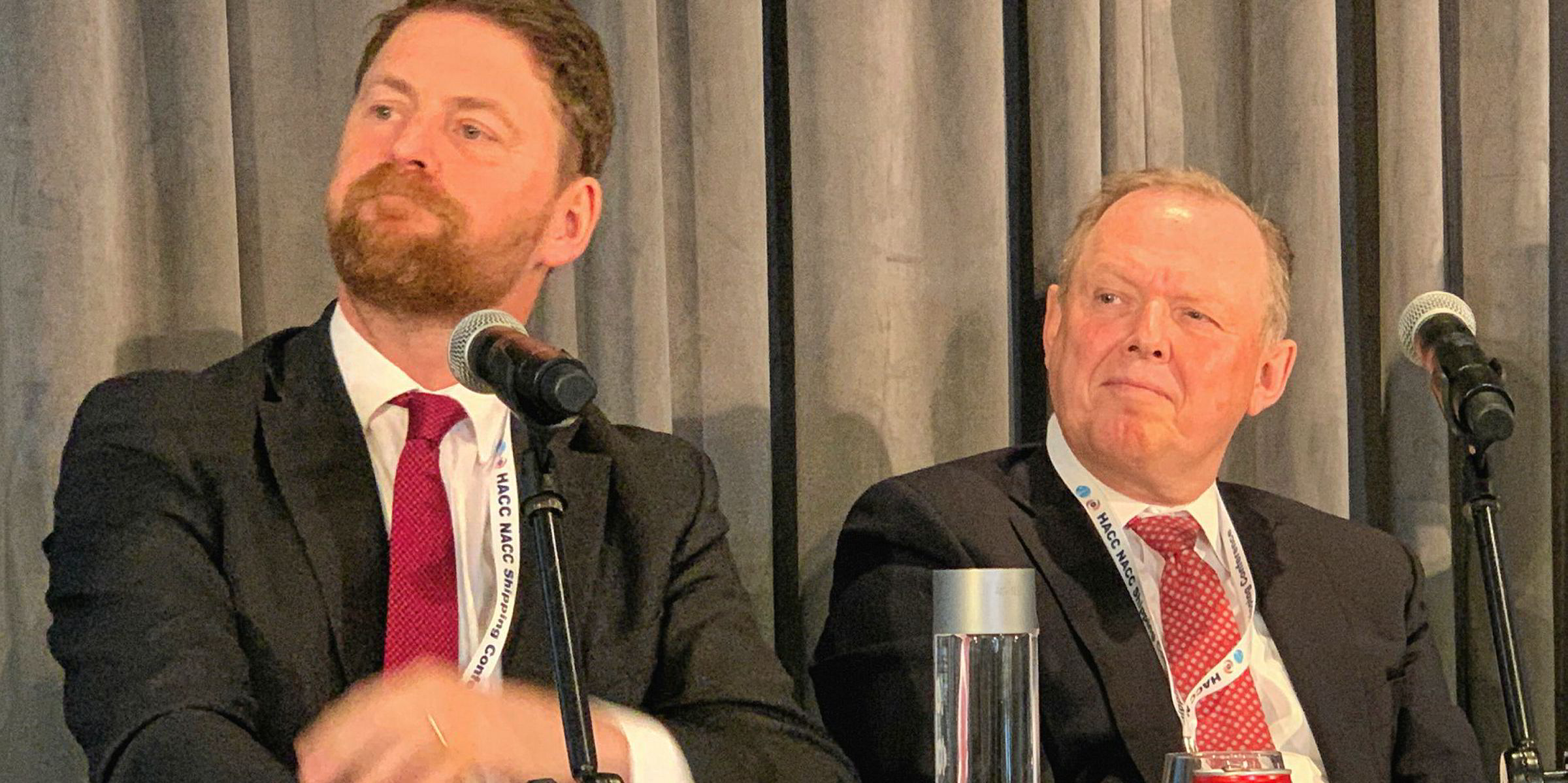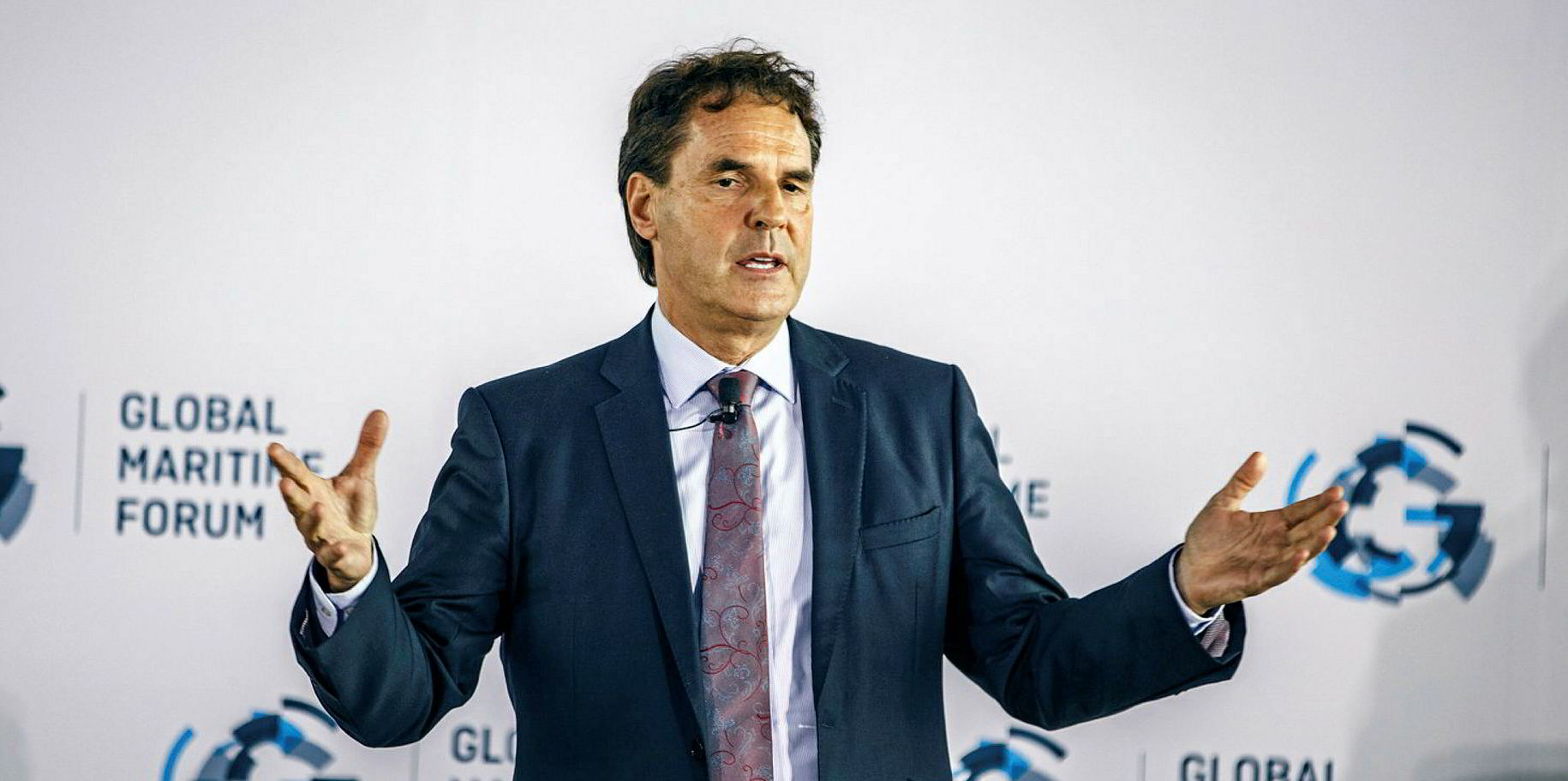They seem to have faded away, those storylines that made up shipping’s main themes prior to the past month in which the world changed.
The coronavirus pandemic has become the one and only story, in shipping and in the broader world.
Exhaust gas scrubbers? US government trade sanctions?
All so very 2019.
And so too the momentum that was building around environmental and social governance (ESG) themes, carbon emissions and the development of the Poseidon Principles by the industry’s top lenders.
But two of shipping’s thought leaders – Michael Parker of Citigroup and Grahaeme Henderson of Shell International Trading & Shipping – got together online Tuesday to keep some of those themes alive, even amid the chaos wrought by the virus.
It was the opposite of a debate – more a cordial chat between two men of like mind promoting progressive aims. Both are leaders of the Getting to Zero Coalition, a carbon reduction venture of the Global Maritime Forum.
Henderson and Parker took turns interviewing one another in a session of Capital Link’s online shipping conference.
Parker, Citi’s chairman of global shipping and logistics, is the chief architect of the Poseidon Principles, which link lending practices to shipowners’ commitment to build green vessels.
“Once we get through this [coronavirus], it’s important that we don’t stop the pace of change that was happening,” Parker said.
He cited hope that the same sense of world bonding over a common cause that marks the virus struggle might prove a template.
“Maybe coming together globally will help a cause like climate change,” Parker said.
Henderson, vice president of shipping and maritime, cited a need for the industry to get the most out of existing technology to reduce carbon dioxide output even though it will not be the ultimate solution.
Through a combination of strategies like weather routing and use of LNG as a fuel, Shell has been able to reduce emissions on the order of 70% against a 2008 baseline, he said.
While ammonia or another energy source might be the answer long term, “at the moment LNG is the only lower carbon solution available and affordable,” he said.

Parker advocated for shipping innovators to press hard for change regardless of the current regulations in place by its regulator, the International Maritime Organisation (IMO).
“The pace of change cannot wait for regulators like the IMO,” Parker said. “The challenge is to move ahead of those rules – let the rules catch up.”
Since new fuel solutions will be expensive, Parker called on a sharing of costs among the various players along the supply chain with a message that will be accepted by consumers of the end product.
“Shipping has got to get away from this historic fear of having to absorb the cost of everything,” he said.
The greater cost of a solution will likely add to forces that are pressuring shipowners to be larger companies, Parker said.
“Size isn’t everything but it will become more important from a financial perspective,” Parker said.
“Shipping is going to be expensive. There will be an inevitable need to create bigger companies that can attract bank capital.”
Henderson has been an aggressive advocate of safety at sea, and said it had been improved by a factor of six over the past eight years at Shell, with similar progress by other companies.
“I’m very proud of what we’ve done and yeah, we can do this in decarbonisation because we’ve done it in safety,” Henderson said.
At the close of the discussion, the two men agreed they should meet up in person soon.
Parker admitted he was getting antsy working from home, missing the walks around his office to chat with colleagues and get in his daily 10,000 Fitbit steps.
“I’m finding working from home quite stressful,” he said. “I’m having to make a special effort to get on my treadmill morning and night to not look worse than I do on the [video] screen at the moment.”
For the banker, walking on a treadmill was an option. But seeing his environmental goals placed on one clearly was not.







